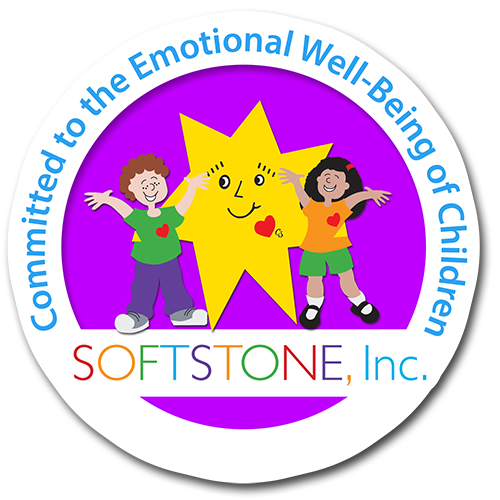Back to school anxieties are common and often not addressed. In part I, I spoke about how these anxieties need to be aired and shared so that children’s day to day learning would not be affected. As many adults do not know how to share their anxiety and fears, children certainly have neither the skills to identify these feelings nor the language and communication abilities to express what is shutting them down. This shut down interferes with their listening and processing skills, and the ability to stay focused. The fears absorb them mentally and emotionally and therefore they will lose substantial incoming information, especially new information. There are ways to help children address their anxieties and manage them. When children learn how to recognize and understand their emotions and feelings, they are able to manage them feeling safer and are more resilient.
My back to school anxieties had to do with the new teacher but more so would I face the same teasing and bullying that happened the year before. Summer had given me a respite for I attended day camp and found a sense of belonging there with my counselors and other children like me. I was lucky to have some physical abilities and so shone in areas that brought me attention and success.
I didn’t sleep for almost a week before school began. In my early years, I couldn’t identify those fears nor understand the hurt and pain I had endured. The thought of telling my parents was unthinkable. There were no discussions about feelings ever. But there was always the hope of a new year and perhaps this one would be different. Day one ended that hope. As I got older, my hope was barely there but my personality always had a way to look on the bright side.
What would have helped me deal with the anxiety and the fears? What skills didn’t I have to be able to understand these feelings and be able to manage them and at least if I couldn’t communicate to my parents about them, I would have the ability to soothe these fears and anxieties and understand more about who I really was and not who my peers projected on me. Those thoughts of fat, ugly and stupid haunted me for years. Thirty years ago at the age of 36. I started exploring self-awareness but it took me to the age of 60 to really understand what skills I was lacking that would truly offer me a different way of being in the world. I discovered that not being emotionally intelligent hampered my ability to manage emotions and stay present. According to Psychology Today, Emotional Intelligence or its shorthand EQ (the emotional version of IQ), is the “ability to identify and manage your own emotions and the emotions of others.” As a child, I didn’t have the necessary skills to calm anxieties, redirect thoughts and persist despite frustration.
We can’t do much about other people’s behaviors but we can manage our own, creating an inner world that allows us to function, feel emotionally safe and reach our potential. Here are a few helpful hints based on the recognized key emotional intelligence skills.
Practice these fun exercises before the kids head off to those daunting first days of school.
- Practice kindness. This builds inner and outer empathy, reducing anxiety. Encourage thinking and saying kind words to each other, siblings, pets, even strangers. Tell your children to think of these words as “gifts of love.” We learn who we are from the voices we hear. What better gift to give another or yourself than a kind voice. The Emotional Intelligence (EQ) skill to empathize.
- Choose “Happy Thoughts.” Positive self-talk is extremely important when we are fearful, anxious, and need support. We can’t always get this from parents, who are not in school, or from busy teachers. Practice this with your children until it becomes habitual, especially when they are feeling and acting negatively. “Can I have a happy thought, please?” is a great reminder to refocus and replace negative thoughts. Negative thinking only increases fears and anxieties. This builds self-confidence and is the best stance to take against a bully. The Emotional Intelligence (EQ) skill to motivate oneself and feel confident.
- Self-calming and soothing is essential. We lose focus, make bad decisions and are forgetful when we feel angry, frustrated, annoyed or scared. Keep saying affirmations or “I” messages until you calm down. It takes 6 seconds to change that fear into calm with just one affirmation. They clear the head and let you rethink and consider options. “I am calm.” “I am good.” “I am kind.” These are just a few. Pick your own. Have your children pick their favorites and practice! It is another “happy thought.” The Emotional Intelligence skill to self-regulate moods.
- Persisting in the face of frustration is critical especially when being teased, failing, or not excelling at sports. If children learn to persist at these challenges now, when life altering challenges come along in later life, they will be able to carry on. The key is gratefulness. Stopping and saying to yourself what is good right now in your life takes you out of the victim role and allows you to move forward. Reminding a child that they got up and went to school and did the best they knew how and to say a grateful for this moment is just how to move forward with a positive thought and action. If your children become frustrated at school, they can stop, take a breath (6 seconds) and think about something for which they are grateful. The Emotional Intelligence skill to persist in the face of frustration.
As parents, we too are anxious about the new school year. Vacations are over, schedules resume and homework becomes a priority. May these suggestions ease the start of school for the entire family! Slow down, take a breath and remember my “gifts of love” to you!


